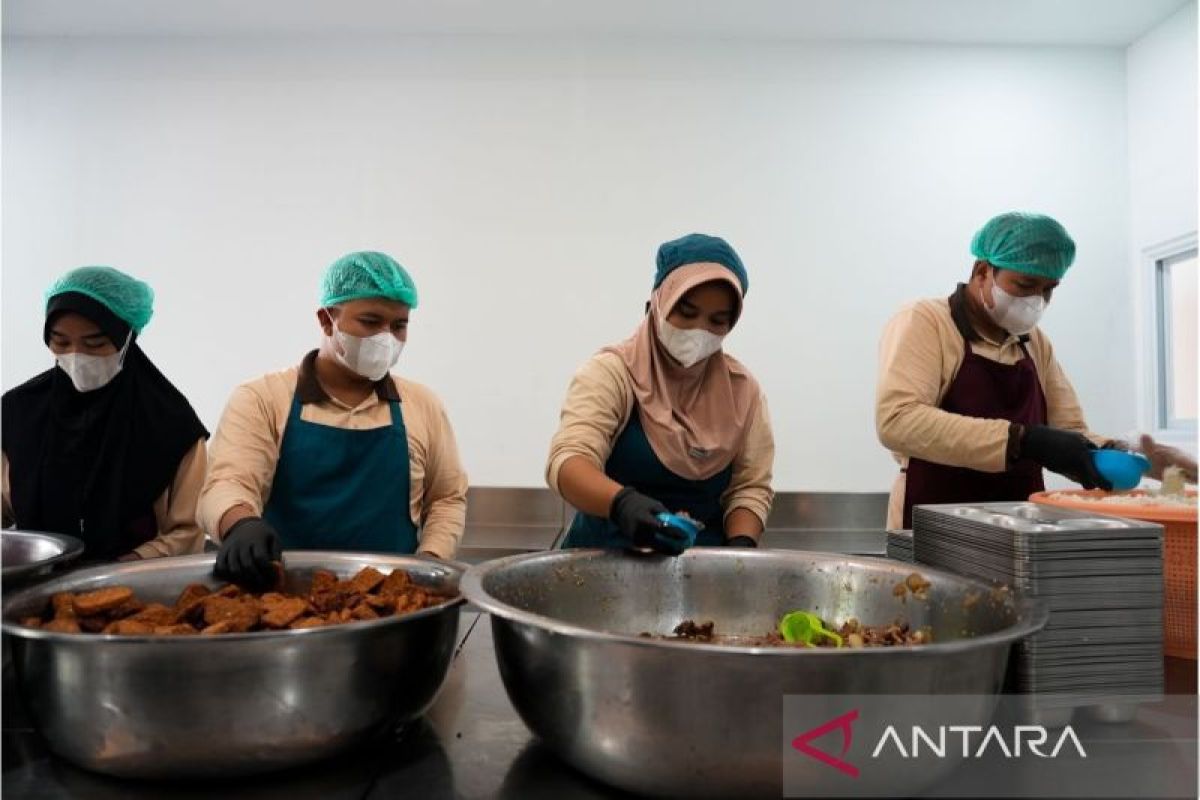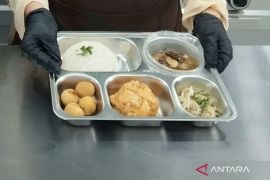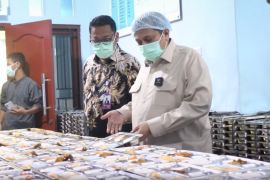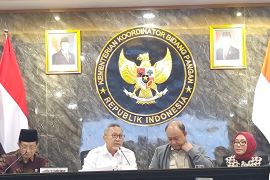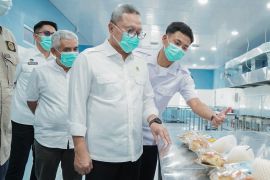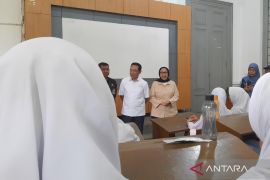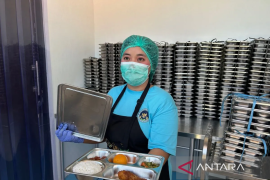Amid ongoing reports of food poisoning linked to meals distributed through the free nutritious meal program (MBG), one public kitchen in Tanah Sareal has maintained a zero-incident record for nearly nine months.
Effective management has been key to consistently delivering high-quality service to thousands of beneficiaries each day.
The Tanah Sareal Nutrition Fulfillment Service Unit (SPPG) began operations on January 6, 2025, following three months of intensive training in the preparation of nutritious and hygienic meals.
Located in Kedungbadak, Tanah Sareal Sub-district, Bogor City, the kitchen underwent rigorous preparation starting in November 2024.
“We monitor the process from the arrival of ingredients to the moment the food is served,” explained Countessha Nicola, a nutritionist at the Tanah Sareal SPPG.
Before entering the kitchen, all ingredients undergo quality control. Items that do not meet standards are separated, and dry and wet ingredients are stored separately.
Wet ingredients such as meat and spices are refrigerated immediately after sorting.
Refrigerator temperatures are adjusted based on the type of food: meat is stored below -15°C, while spices are kept in a cooler at a slightly higher temperature.
Cooking begins at 1:00 a.m. for dishes requiring longer preparation, such as meat, while simpler meals are prepared starting at 2:00 a.m.
“Portioning and packaging begin at 5:00 a.m., after the meals have cooled,” Nicola said.
She emphasized that the cooling process is critical to slowing spoilage.
Packaging food while still hot increases the risk of bacterial contamination due to water evaporation, which accelerates spoilage.
Once packaged, meals are distributed to schools and must arrive by 7:00 a.m. for consumption by preschool, kindergarten, and elementary students.
The Tanah Sareal SPPG operates in shifts, with 46 workers supporting its daily operations.
A second cooking session begins at 7:00 a.m., followed by portioning and packaging at 9:00 a.m.
These meals are delivered by 11:00 a.m. and are intended for junior high, high school, and equivalent students.
“For food, the ideal consumption window is within four hours of serving. Beyond that, the risk of spoilage increases,” Nicola noted.
Sample storage and safety protocols
To ensure safety, the kitchen prioritizes organoleptic testing.
Before distribution, ready-to-eat meals undergo sensory evaluation—sight, smell, taste, touch, and even sound.
“We check the aroma, taste, and color, and then store food samples,” Nicola said.
Each SPPG is required to store samples for up to 14 days (14 x 24 hours). These samples are submitted to the Health Office for inspection in the event of any incidents.
Personal Protective Equipment (PPE) is mandatory throughout all stages—from handling raw materials to final packaging. Staff must wear masks, head coverings, gloves, and hygienic footwear.
“Everything must be hygienic to prevent contamination from staff to the food,” Nicola emphasized.
Menu planning is also carefully regulated. Beyond variety, meals must meet Recommended Nutritional Intake standards.
“For example, we calculate how many milliliters of milk or grams of fruit should be served to schoolchildren. We ensure no item exceeds the recommended portion,” she explained.
The Tanah Sareal SPPG produces over 3,500 MBG portions daily, distributed to 15 schools—ranging from kindergartens to high schools—within a five-kilometer radius.
In addition to students, MBG beneficiaries include pregnant women, breastfeeding mothers, and toddlers.
Waste management and community support
Beyond safety, the Tanah Sareal SPPG is also committed to sustainability.
In its final stage, the SPPG sorts MBG-related waste into food waste and ingredient waste. These are distributed to nearby small businesses, such as catfish and maggot farmers.
The MBG program is a flagship initiative introduced by President Prabowo Subianto. Since its launch in January 2025, it has aimed to nurture a generation of healthy, nutritionally fulfilled children.
While the MBG program has faced scrutiny following over 6,000 reported cases of food poisoning across 18 provinces, the Tanah Sareal SPPG stands out as a model of excellence.
According to the National Nutrition Agency (BGN), most incidents occurred in newly established kitchens that lacked proper training and oversight. In contrast, Tanah Sareal’s three-month pre-launch training period and rigorous daily protocols have helped it avoid such pitfalls.
Through SPPG kitchens, the government must ensure access to free, safe, and high-quality nutritious meals—by enforcing food safety standards, nutritional guidelines, and accountability mechanisms.
This effort is essential to reaching the 82.9 million MBG beneficiaries targeted this year and realizing Indonesia’s Golden Demographic Bonus by 2045.
Related news: BGN requires certified chefs to curb MBG food poisoning cases
Related news: BGN suspends MBG kitchen in West Bandung after mass poisoning claim
Editor: Aditya Eko Sigit Wicaksono
Copyright © ANTARA 2025
